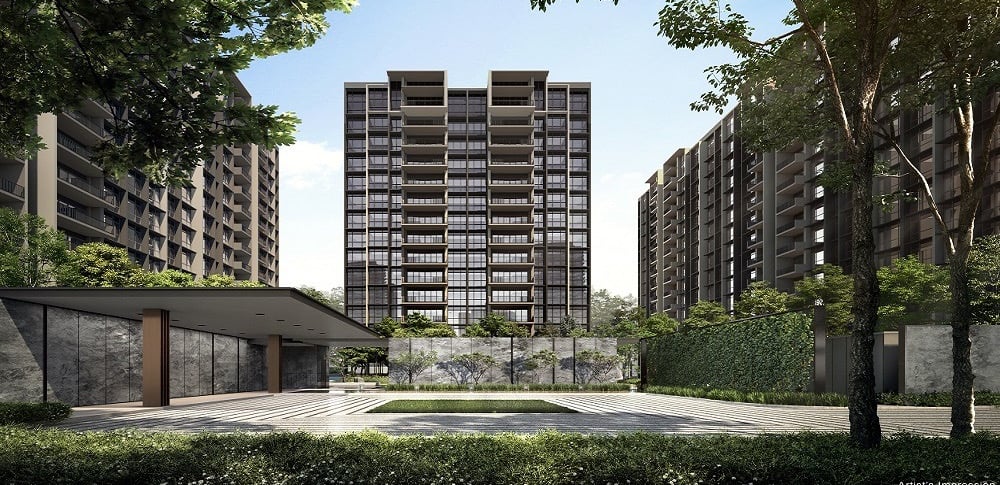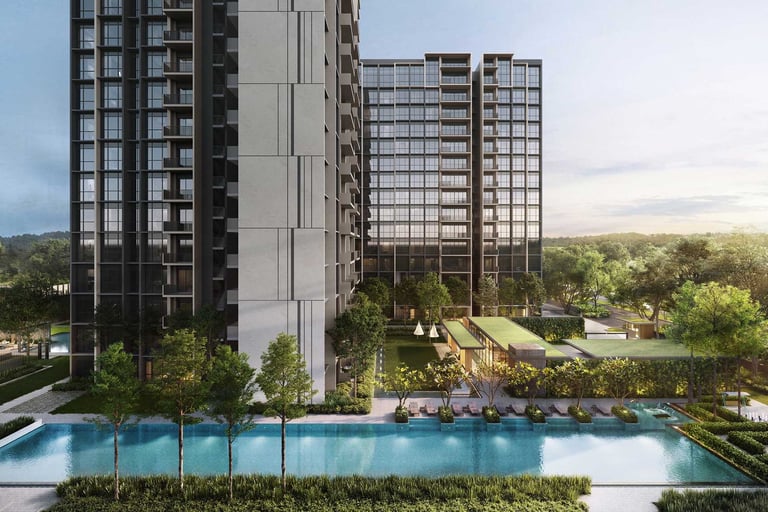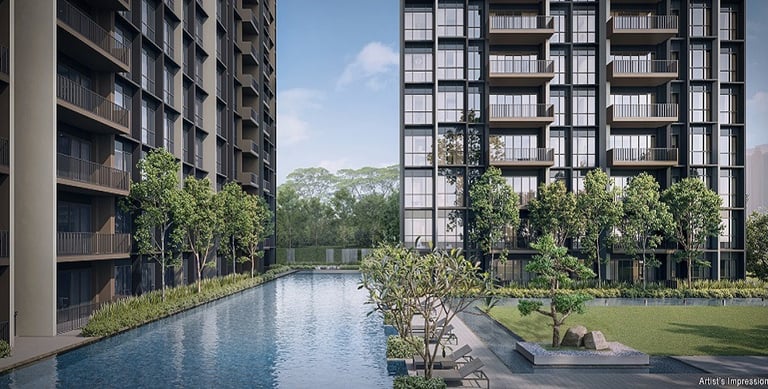Why Buying a New Executive Condominium (EC) in 2025 Makes Sense
Probably the best buy if you qualify
HDBNEW LAUNCH
1/15/20254 min read


Why Buying a New Executive Condominium (EC) in 2025 Makes Sense
Executive Condominiums (ECs) have been a popular choice for Singaporeans looking to break into private property without paying the full price of a private condo. If you're thinking about purchasing property in 2025, a new EC might just be one of the smartest moves you can make. Here's why buying a new EC in 2025 still makes sense despite cooling measures, rising prices, and changing property trends.
1. Affordable Entry Price Compared to Private Condos
ECs are priced at a discount compared to private condos.
This is one of their main draws. Developers of new ECs are required to price their units more affordably as they receive subsidies like cheaper land from the government. As a result, EC buyers typically pay 20-30% less than those purchasing a comparable private condo.
- In 2025, with OCR (Outside Central Region) new launch condos pushing prices to around $2,000+ PSF, new ECs remain more reasonable, typically starting around $1,300 to $1,500 PSF.
Why It Matters:
You get private condo-like facilities—swimming pools, gyms, and BBQ pits—but at an affordable price point.
Example:
A 3-bedroom unit in an EC development like Altura (Bukit Batok) might cost $1.3M, whereas a similar-sized private condo unit could easily reach $1.7M or higher. That’s a big price difference for comparable amenities and lifestyle benefits.
---
2. Government Housing Grants and Subsidies
EC buyers are eligible for CPF Housing Grants that aren’t available to private condo buyers.
- First-Timer Grant: Up to $30,000 for couples purchasing their first property.
- Proximity Housing Grant: Up to $30,000 if you’re buying near your parents or children.
Why It Matters:
These grants can significantly reduce the initial financial burden, making ECs even more affordable for first-time buyers.
---
3. Progressive Payment Scheme Eases Cash Flow
Like other new launch condos, ECs follow a progressive payment scheme. This means you’ll only pay a portion of the purchase price at various stages of the project’s construction. Your full mortgage repayment only kicks in after the development receives its Temporary Occupation Permit (TOP) (usually 3-5 years after launch).
Why It Matters:
This staggered payment structure gives you time to build savings or manage other financial priorities while waiting for your unit to be completed.
---
4. Potential for Capital Appreciation
Once an EC reaches its Minimum Occupation Period (MOP) of 5 years, it can be sold to Singaporeans and PRs on the open market as a resale property. After 10 years, it becomes a fully private property that can be sold to foreigners as well.
Why It Matters:
The transformation from subsidized housing to fully private property means capital appreciation. Many buyers have enjoyed significant gains when selling their ECs after the MOP period, especially if the EC is located in an area with strong demand and good connectivity.
Example:
- A unit in Piermont Grand (Punggol), launched at around $1,100 PSF, saw resale prices crossing $1,300 PSF after hitting the 5-year MOP mark, representing a significant return on investment.
5. More Bang for Your Buck in Terms of Space and Facilities
Compared to private condos, ECs often offer larger units at a more affordable price. This is ideal for families or those who need extra space for a home office or guest room.
Why It Matters:
With ECs, you’re not just paying for luxury finishes—you’re getting larger livable spaces and the same resort-style facilities found in private condominiums.
---
6. Targeted for Genuine Buyers, Not Speculators
ECs come with eligibility criteria, including income ceilings and citizenship restrictions. This means they attract genuine homeowners rather than speculators looking to flip properties quickly for profit.
- Income Ceiling: Buyers must have a combined household income of $16,000 or less.
- Citizenship: At least one buyer must be a Singaporean citizen.
Why It Matters:
Because ECs are not open to immediate speculative activity, they tend to appreciate steadily and sustainably, making them a safer investment.
---
7. Lower Risk Amid Cooling Measures
With rising Additional Buyer’s Stamp Duty (ABSD) rates affecting private property investors, ECs provide a relatively safer entry point into the private market.
- For First-Time Buyers: No ABSD applies when purchasing your first EC.
- For Upgraders: If you’re selling your HDB to buy an EC, you won’t incur ABSD on your new home purchase.
Why It Matters:
In a market where government cooling measures continue to tighten, ECs remain one of the more affordable and less risky options.
---
What to Watch Out For When Buying an EC in 2025
1. Income Eligibility Cap:
- If your combined household income exceeds $16,000, you won’t qualify for an EC.
2. Location Matters:
- Ensure the EC you’re considering is in a well-connected location with access to MRT stations, schools, and amenities for better capital appreciation and rental demand.
3. Wait Time:
- New ECs typically require a wait of 3-5 years before completion, so they may not be ideal if you’re looking for immediate housing.
Final Thoughts
In 2025, buying a new EC still makes sense, especially if you’re a first-time buyer or upgrader looking for affordable private housing options. With attractive pricing, government grants, and long-term capital appreciation potential, ECs offer excellent value in an otherwise pricey property market.
Just make sure you do your homework—look at the location, consider future developments, and ensure you’re financially prepared for both short-term and long-term commitments.
With careful planning, your EC purchase could be one of the smartest decisions you make. Happy house hunting! 🏡✨




Looking to Buy or Sell your home? Have some questions for us?
Leave us a message and we will be in touch with you shortly.
